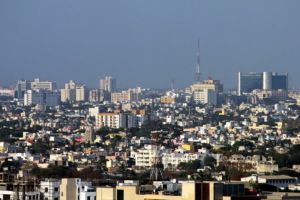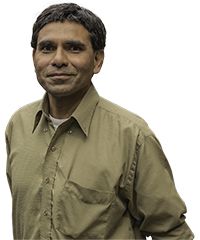Opinion
Mishra’s Mishmash: What Copenhagen can learn from Chennai
Mrutyuanjai Mishra
This article is more than 7 years old.

Will ‘Clean Chennai’ dislodge ‘Contaminated Copenhagen’ as one of the most liveable cities in the world? (photo: VTTN)
Chennai is the capital city of the Indian state of Tamil Nadu, and its government has recently announced that it will ban single-use plastics from 1 January 2019.
Challenge concerns us all
Just last week I returned from a trip to Tamil Nadu with a group of journalists from Denmark, Sweden and Finland. And the Danish delegation members were especially impressed by the announcement of the law, which in their words brought Tamil Nadu a leap ahead of Denmark.
Denmark ought to be ahead and set an example, but Copenhagen can learn a bit from Chennai, said a few of the Danish delegation members, looking surprised to read about the ban in the newspaper while we toured several cities in the state.
Nordic countries, of course, have experienced an unprecedented level of heatwaves and forest fires this summer, forcing people to think of even more new alternative and eco-friendly ways of living. It was clear on the trip that there is a growing realisation that the challenge concerns us all.
Problems of plastic
As far as the government of Tamil Nadu is concerned it is impossible to get rid of the plastic once it is out there in the market, so the best policy is to ban it.
Plastic wastage in India is responsible for impeding the water flow, thereby causing stagnation in the sewage system. It prevents the percolation of rainwater into the soil and causes flooding in the drainage system, resulting in the breeding of dengue and malaria-causing mosquitoes.
Plastics are also blamed for causing flooding in streets, and it has begun to affect the quality of the soil as well. Cattle feed swept up together with plastic waste on the roadside remains uncollected, and when people burn the plastics lying on the roads, it causes air pollution.
The ban includes the production, sale, storage and usage of items such as plastic cups, plastic paper, plastic straws and plastic bags, which are often used when you buy takeaway food for lunch or dinner. Size is irrelevant in the sense that even micro-size plastic bags are to be banned, eliminating all possible use of plastic.
Think outside the box
As a result of this stringent law, the hotel and restaurant sector has taken the initiative to motivate people to use alternatives to plastic bags. Last week, while we were in the state of Tamil Nadu, the Hotels Association announced that customers could get a 5 percent discount on the bill if they brought their own utensils and doggy bags.
Those who have seen the award-winning film ‘The Lunchbox’ from 2013, which was shot in India, know of the extent to which tiffin boxes (solid lunch boxes) can be used, washed and reused.
And now Indians are reverting to their traditional way of eating food, with limited cutlery or crockery, in order to tackle climate change.
Election initiative needed
So ahead of the Swedish elections in a couple of weeks, and the Danish ones next year, who will have the courage to propose a plastic ban like the one in India?
Earlier this month, Copenhagen was listed as one of the most liveable cities in the world by the Economist Intelligence Unit, so surely it won’t want to be outshone on eco-friendly measures by the likes of Tamil Nadu?
This time next year, it might end up losing its place to Chennai.

About
Mrutyuanjai Mishra
As a regular contributor to the Times of India, the country’s largest newspaper, Mishra is often sought-after by Danish media and academia to provide expertise on Asian-related matters, human rights issues and democratisation. He has spent half his life in India and the other half in Denmark and Sweden.










































